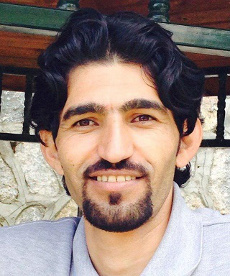Iranian Experts Welcome Drug Execution Reform Bill
2/14/17 • Categorized as News
Iranian legal experts have welcomed the Majles Judicial Commission’s February 13 approval of a measure meant to reduce the country’s high rate of execution for drug offenders. In comments published February 14 by Khabar Online, experts in the areas of law, drug policy, and sociology expressed support for the bill, reflecting growing civil society support for an approach to drug crime consistent with human rights and international law.
 Bahman Keshavarz, head of Iran’s National Union of Bar Associations, took aim at Iran’s present failed policy: “Execution is not a punishment you can mete out in every instance and then hope for a positive result with. Its inefficiency and lack of effect have been proven in practice: if capital punishment were going to show results, it would have rooted out drug crime in Iran by now.” Keshavarz also pointed out that the severity of the current sentencing regime tends to undermine the consistency and reliability of the legal process as a whole: “In many cases, harsh punishments lead courts to dispute the validity of the reasoning behind them and adjust sentencing. If incarceration were made an imperative sentence difficult to lessen or weaken, it would likely lead to a better result.”
Bahman Keshavarz, head of Iran’s National Union of Bar Associations, took aim at Iran’s present failed policy: “Execution is not a punishment you can mete out in every instance and then hope for a positive result with. Its inefficiency and lack of effect have been proven in practice: if capital punishment were going to show results, it would have rooted out drug crime in Iran by now.” Keshavarz also pointed out that the severity of the current sentencing regime tends to undermine the consistency and reliability of the legal process as a whole: “In many cases, harsh punishments lead courts to dispute the validity of the reasoning behind them and adjust sentencing. If incarceration were made an imperative sentence difficult to lessen or weaken, it would likely lead to a better result.”
Ramin Radfar, an expert in the area of addiction, characterized the reform measure as “one of the most progressive and humane decisions the judiciary has made.” Years of executing small-time offenders charged for tiny volumes of controlled substances, “has not only failed to have a preventative effect, but has failed to reduce the number of interdictions, arrests, and traffickers” according to Radfar: “If capital punishment were supposed to prevent such things, it would have shown an effect in the last three decades.” Radfar also called attention to the plight of families affected by the Judiciary’s present conduct: “Executing the heads of households has the practical effect of leaving families without anyone to care for them. Though precise numbers on those accused of trafficking aren’t available, there are definitely a great many spouses and children of the executed who fall into the drug cycle as sellers or consumers.”
Dr. Omran Razaghi, sociologist, stated that “From a scientific angle, there isn’t sufficient evidence that capital punishment reduces people’s drug tendencies.” Razaghi elaborated: “[The reform proposal] shouldn’t be a matter of conflict between science and policymaking, but rather a matter of their mutual understanding and agreement. In any case, from the point of view of science there is evidence attesting to the ineffectiveness of capital punishments for drug sellers. We’re happy to see any decrease in the number of executions.”
Comments are closed.
 My Interrogator Said: You Are An Ass, And Asses Do Not Merit Human Rights
My Interrogator Said: You Are An Ass, And Asses Do Not Merit Human Rights